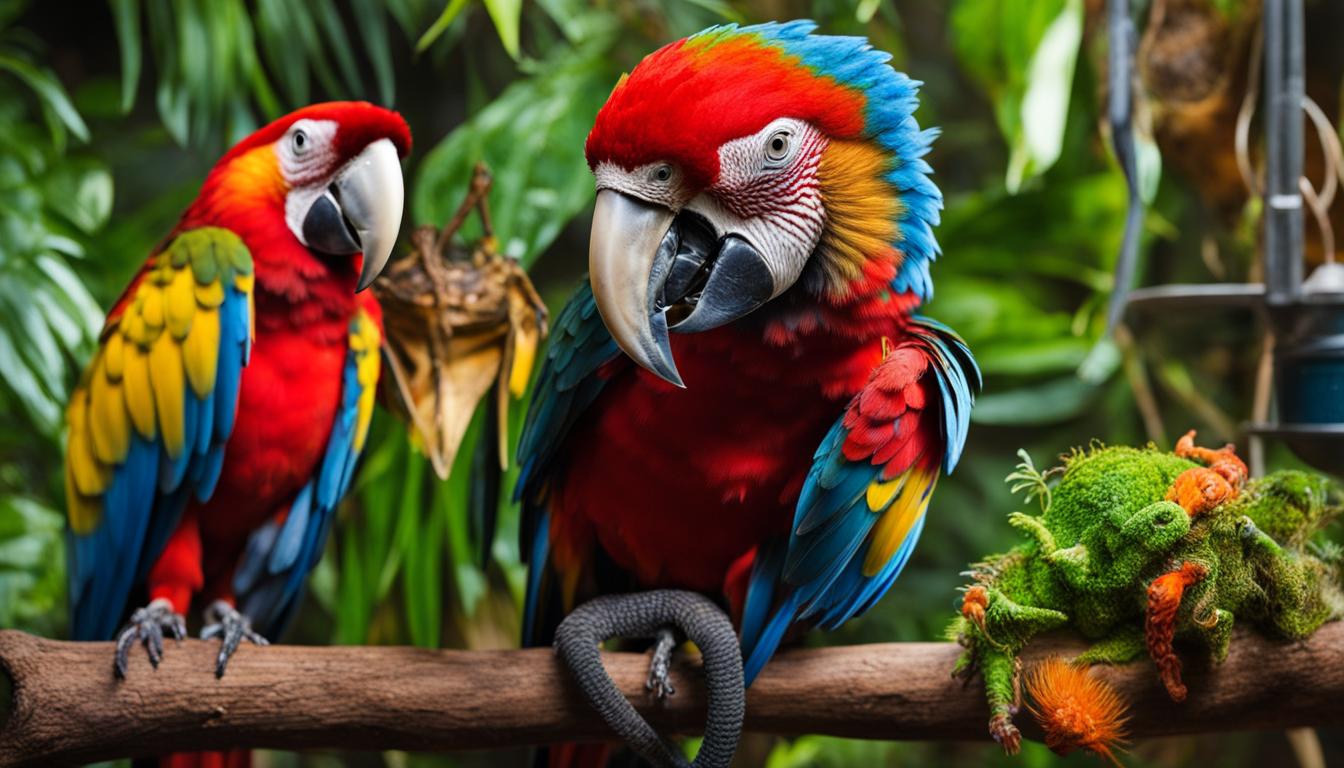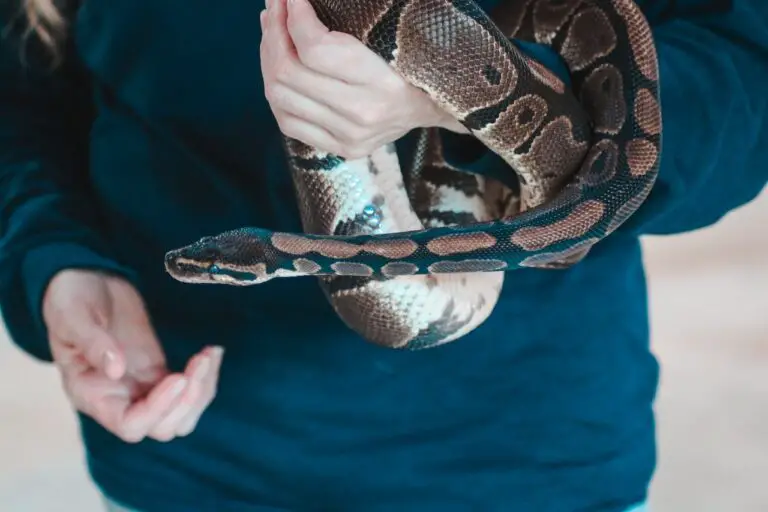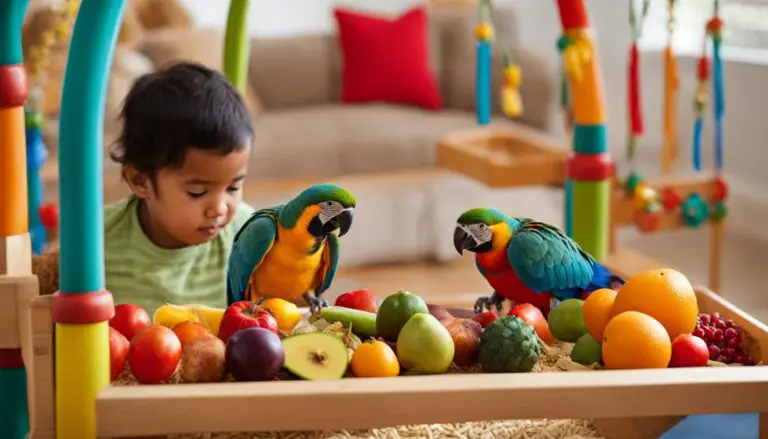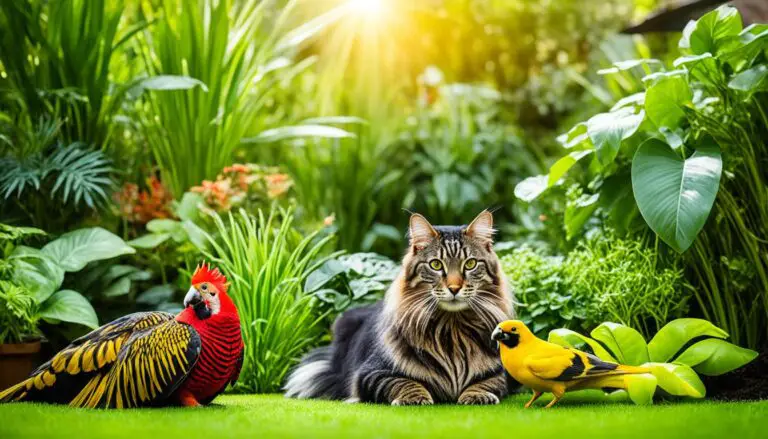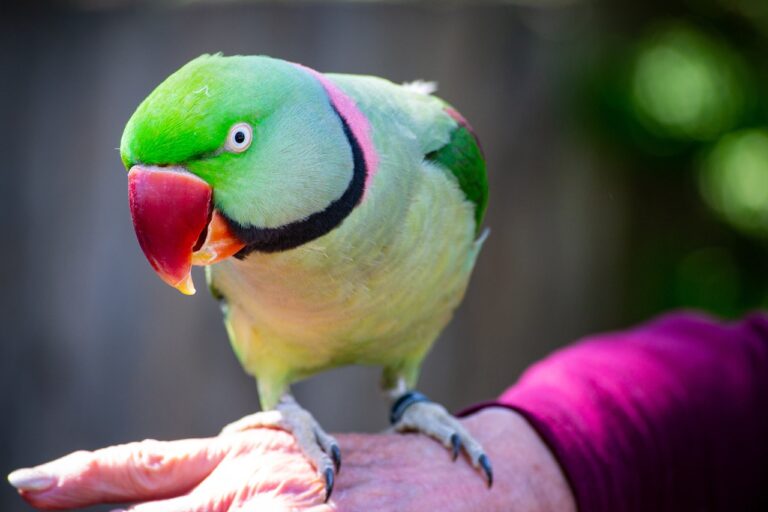Exotic Pet Care for Beginners [Guide]
Exotic pets are captivating for many reasons—their unusual characteristics, striking beauty, and unique behaviors bring their owners closer to the natural world. But, while caring for an exotic pet can be a deeply rewarding experience, you may also feel uniquely challenged. Understanding your exotic pet’s unique needs is crucial to ensuring they enjoy a long and healthy life.
Improper or inadequate care is the most common cause for exotic pet illness and death. Exotic pets encompass a wide variety of animals, including rodents, rabbits, ferrets, reptiles, amphibians, and birds. Proper handling and restraint techniques are essential for the safety and well-being of both you and your pet. Creating a suitable housing and environment for your exotic pet is crucial, as they can be extremely sensitive to changes in temperature, humidity, and light. Providing a species-specific diet is essential for their nutrition and overall health. Enrichment activities are important to promote their physical and emotional well-being. Regular veterinary care is necessary to ensure their well-being and detect any potential health issues early on.
Key Takeaways:
- Understanding your exotic pet’s unique needs is crucial for their well-being and longevity.
- Proper handling and restraint techniques are important for both your safety and your pet’s well-being.
- Creating a suitable housing and environment is essential for your exotic pet’s comfort and health.
- Providing a species-specific diet is crucial for their nutrition and overall health.
- Enrichment activities are important for the physical and emotional well-being of your exotic pet.
What is an Exotic Pet?
An exotic pet is a species that is undomesticated and does not vary from their ancestors in appearance or behavior. Unlike traditional pets like cats or dogs, exotic pets encompass a wide range of animals. From rodents to reptiles, each species has its own unique needs and characteristics that require specialized care and attention.
Exotic pets can include:
- Rodents
- Rabbits
- Ferrets
- Sugar gliders
- Reptiles
- Amphibians
- Birds
These fascinating creatures bring a sense of wonder and intrigue to their owners. However, it’s important to remember that caring for an exotic pet requires a deep understanding of their unique needs. With proper research and attention to detail, you can provide a safe and enriching environment for your exotic companion.
“Exotic pets can include a wide variety of species, each with its own unique care requirements.”
Exotic Pet Handling and Restraint
Exotic pet species require gentle yet confident handling to ensure they feel secure and supported. Restraint- and handling-related injuries are common, making proper handling techniques crucial. The handling techniques may vary depending on the species and individual preferences. Prey species exotics, such as rodents and rabbits, are especially susceptible to severe stress reactions and should be handled with minimal trauma. It is important to understand your pet’s needs and seek guidance from a veterinarian or experienced exotic pet expert on safe handling techniques for essential care tasks.
Handling Techniques for Exotic Pets
Handling and restraint techniques for exotic pets should prioritize their safety and minimize stress. Here are some general guidelines:
- Approach with caution and confidence: Exotic pets are sensitive to their environment and can pick up on your energy. Approach them calmly and confidently to help them feel more at ease.
- Use appropriate equipment: Depending on the species, you may need specialized handling equipment like gloves or tongs. Consult with a veterinarian or expert to determine the right tools for safe handling.
- Support their body: When picking up an exotic pet, provide support to their body to prevent injury. Avoid grasping them too tightly or restraining them in a way that causes discomfort.
- Know their limits: Each exotic pet has different preferences and boundaries. Be observant of their body language and reactions to determine if they are comfortable with handling or if they need some space.
Remember, proper handling techniques ensure the well-being of your exotic pet and reduce the risk of injury. Seek guidance from professionals and educate yourself on species-specific handling needs for a successful and safe interaction.
“Proper handling and restraint techniques are essential for the safety and well-being of both you and your pet.”
| Species | Handling Tips |
|---|---|
| Reptiles | Support the body and avoid excessive pressure on the fragile tail or limbs. Be cautious of bites or scratches. |
| Rodents | Handle rodents with gentle care to prevent injuries and stress. Avoid sudden movements and loud noises. |
| Avian | Approach birds calmly and use controlled handling techniques. Pay attention to their body language and avoid gripping their wings tightly. |
| Ferrets | Support the body and handle them gently. Be cautious of their sharp teeth and nails. |
By understanding and practicing proper handling techniques, you can build trust with your exotic pet and provide them with a calm and secure environment.
Exotic Pet Housing and Environment
Creating a suitable housing and environment for your exotic pet is crucial to their health and well-being. By providing an optimal living space, you can ensure that your pet feels safe, comfortable, and secure.
To begin, choose a quiet and draft-free area in your home to place the enclosure. Exotic pets are often sensitive to noise and disturbances, so it’s important to minimize disruptions. Additionally, ensure that the enclosure is located away from potential threats such as direct sunlight, extreme temperatures, and other household pets.
Safety measures should be in place to prevent your pet from escaping and accessing hazards. Depending on the species, this may include secure locks, reinforced cages, and supervised playtime. Remember that exotic pets have unique escape instincts and may require extra precautions to ensure their safety.
The temperature, humidity, and lighting within the enclosure should be carefully regulated to meet the specific requirements of your pet’s species. Some exotic pets, like reptiles, amphibians, and tropical birds, require specific temperature and humidity ranges to thrive. Adequate lighting, both natural and artificial, is also essential for their well-being.
When selecting bedding substrates, choose options that are safe for your pet and minimize the risk of respiratory issues or ingestion hazards. Different species may have different preferences, so it’s important to research and select the most suitable bedding material accordingly.
Hygiene practices are crucial in maintaining a clean and healthy environment for your exotic pet. Regularly clean and disinfect the enclosure, litter boxes, water bowls, and any other accessories. This helps prevent the accumulation of bacteria, parasites, and other potentially harmful organisms. Be cautious of using harsh chemicals that may be toxic to your pet and opt for pet-safe cleaning agents instead.
Access to essential resources is vital for your exotic pet’s well-being. Provide ample amounts of fresh food and water, ensuring that they are easily accessible. Incorporate hiding places, such as caves or tunnels, where your pet can retreat to when they desire privacy or a sense of security. Enrichment items, like toys and puzzles, can keep your pet mentally stimulated and physically active.
Table: Exotic Pet Housing Recommendations
| Exotic Pet | Housing Requirements |
|---|---|
| Tropical reptiles and amphibians | Enclosure with controlled temperature, humidity, and UVB lighting. Substrates like coconut coir or reptile carpet. |
| Small mammals (ferrets, sugar gliders) | Spacious cages with multiple levels, bedding materials like paper-based or aspen shavings, and hiding spots for privacy. |
| Avian species | Cage with appropriate bar spacing, perches, and toys for mental stimulation. Regular wing clipping or supervised flight time. |
| Arachnids and insects | Secure enclosures or terrariums with proper ventilation and substrate specific to the species. |
By providing a suitable housing and environment for your exotic pet, you can ensure that they thrive in their new home. Remember to research the specific needs of your pet’s species and consult with a veterinarian or experienced exotic pet expert for guidance.
Exotic Pet Nutrition and Diet
Proper nutrition is crucial for the well-being and longevity of exotic pets. Each species has specific dietary requirements that must be met to ensure optimal health. Whether your exotic pet is a herbivore, omnivore, or carnivore, it is essential to provide them with a diet that closely mimics their natural food sources.
Commercially available diets may not always be suitable or balanced for exotic pets. Consulting with a veterinarian experienced in exotic pet care is vital to determine the best diet for your pet’s specific needs. A veterinarian can provide guidance on the appropriate types and quantities of food, as well as any necessary supplementation.
Poor nutrition can have serious consequences for exotic pets, leading to vitamin deficiencies, gastrointestinal issues, and dental health problems. By prioritizing a species-specific diet, you can help prevent these health issues and promote overall well-being.
A Balanced Diet for Exotic Pets
Creating a balanced diet for your exotic pet involves considering their natural dietary habits and preferences. Here are some key considerations:
- Herbivores: Exotic pets that are herbivores, such as rabbits and certain reptiles, require a diet rich in leafy greens, vegetables, and sometimes fruit. It is important to avoid feeding them foods that are toxic to their species.
- Omnivores: Omnivorous exotic pets, like some bird species and turtles, benefit from a combination of plant-based foods and high-quality protein sources. This may include pellets, seeds, insects, and small amounts of lean meat.
- Carnivores: Carnivorous exotic pets, such as snakes and certain amphibians, require a diet primarily composed of appropriate prey items. These may include rodents, fish, insects, or other small animals.
It is important to note that the specific dietary requirements of your exotic pet may vary based on their age, size, and health status. Regular consultations with a veterinarian will ensure their dietary needs are met throughout their lifespan.

“Proper nutrition is crucial for the well-being and longevity of exotic pets.”
| Key Considerations for Exotic Pet Nutrition | Recommendations |
|---|---|
| Species-specific dietary requirements | Consult with a veterinarian experienced in exotic pet care to determine the best diet for your pet. |
| Avoidance of commercially available diets | Commercially available diets may not be suitable or balanced for exotic pets. Seek professional guidance. |
| Risks of inadequate nutrition | Poor nutrition can lead to vitamin deficiencies, gastrointestinal problems, and dental health issues. |
| Herbivores | Provide a diet rich in leafy greens, vegetables, and fruit, avoiding toxic foods. |
| Omnivores | Combine plant-based foods with high-quality protein sources such as pellets, seeds, insects, and lean meat. |
| Carnivores | Feed appropriate prey items, including rodents, fish, insects, or other small animals. |
Exotic Pet Enrichment and Wellbeing
Enrichment plays a crucial role in promoting the physical and emotional well-being of exotic pets. By providing stimulating and species-appropriate challenges, you can encourage natural behaviors, prevent boredom, and alleviate stress. Offering a variety of enrichment strategies is key to ensuring your exotic pet thrives in their environment.
Types of Enrichment
Enrichment activities for exotic pets can encompass a range of strategies, tailored to their specific needs and preferences. These may include:
- Toys: Select toys that are safe, durable, and engaging for your pet. These can include puzzle toys, foraging toys, or toys that encourage physical activity and mental stimulation.
- Visual Stimuli: Provide your exotic pet with visual stimulation by incorporating colorful objects, mirrors, or natural scenery into their enclosure. This can help simulate their natural habitat and prevent visual monotony.
- Structures for Climbing and Resting: Depending on the species, offer structures such as perches, branches, or platforms for your exotic pet to climb, explore, and rest on. This helps fulfill their natural instincts and provides them with different vantage points within their enclosure.
- Positive Social Interactions: Some exotic pets, such as certain bird species or social mammals, may benefit from positive social interactions with their owners or other compatible pets. It is important to consider the specific socialization needs of your exotic pet and provide appropriate companionship or interaction opportunities.
Benefits of Enrichment
Engaging your exotic pet in regular enrichment activities offers numerous benefits for their overall well-being. These include:
- Mental Stimulation: Enrichment tasks challenge your pet’s cognitive abilities, keeping their minds active and improving their problem-solving skills.
- Physical Exercise: Many enrichment activities involve physical movement, allowing your exotic pet to stay active and maintain a healthy weight.
- Reduction of Boredom and Stress: Enrichment prevents boredom and the associated negative behaviors that can result from it, such as excessive chewing or aggression. It also helps reduce stress by providing outlets for natural behaviors.
- Overall Happiness: Exotic pets that are provided with adequate enrichment opportunities are generally happier and more content, leading to improved quality of life.
| Enrichment Strategies | Benefits |
|---|---|
| Toys | Stimulates mental activity and provides physical exercise |
| Visual Stimuli | Prevents visual monotony and simulates natural habitat |
| Structures for Climbing and Resting | Fulfills natural instincts and offers different vantage points |
| Positive Social Interactions | Meets socialization needs and provides companionship |
Remember, it’s important to observe your exotic pet’s response to different enrichment activities and adjust accordingly. Not all strategies may be suitable for every species, so consult with a veterinarian or exotic pet expert to ensure you’re providing the most beneficial enrichment for your pet’s overall wellbeing.
Exotic Pet Veterinary Care Requirements
Regular veterinary care is crucial for the health and well-being of exotic pets. Just like with any other pet, routine check-ups play a vital role in detecting and preventing potential health issues. Exotic pets have unique needs, and a qualified veterinarian with experience in exotic pet care can provide the specialized care and guidance your pet requires.
Annual Wellness Examinations
Annual wellness examinations are recommended for exotic pets to ensure they are in good health. During these visits, the veterinarian will conduct a thorough physical examination, checking for any abnormalities, signs of illness, or changes in your pet’s condition. This allows for early detection of any health issues and the implementation of appropriate treatment or preventive measures.
Parasite Screenings
Parasite screenings are an essential part of preventive veterinary care for exotic pets. Parasites, such as fleas, ticks, mites, and worms, can cause significant health problems if left untreated. Regular screenings help identify and treat any parasitic infestations, protecting your pet’s health and preventing the spread of parasites to other pets or humans in your household.
Routine Blood Work
Routine blood work may be recommended by your veterinarian to assess your exotic pet’s overall health and detect any underlying issues. Blood tests can provide valuable information about organ function, blood cell counts, and detect any signs of infection or disease. This helps in early diagnosis and treatment of potential health problems, ensuring your pet remains healthy and happy.
Monitoring Your Pet’s Health
Regular monitoring of your exotic pet’s behavior, appetite, weight, and overall condition is essential for early detection of any health changes. As a responsible pet owner, you should be attentive to any subtle signs or behaviors that may indicate an underlying health problem. If you notice appetite loss, weight loss, increased thirst, abnormal stools, labored breathing, or skin issues, it’s crucial to seek veterinary attention immediately.
Common Exotic Pet Veterinary Care Procedures
| Procedure | Frequency |
|---|---|
| Annual Wellness Examinations | Once a year |
| Parasite Screenings | As recommended by the veterinarian |
| Routine Blood Work | As recommended by the veterinarian |
Note: The frequency of veterinary care procedures may vary depending on the specific needs of your exotic pet. It is important to consult with your veterinarian to develop a personalized veterinary care plan that suits your pet’s requirements.

Regular veterinary care and check-ups are essential for ensuring the health and well-being of your exotic pet. These veterinary visits, including annual wellness examinations, parasite screenings, and routine blood work, allow for early detection of any health issues and prompt intervention. Monitoring your pet’s behavior, appetite, weight, and overall condition at home is also important to catch any subtle changes that may suggest an underlying health problem. By providing regular veterinary care, you can help your exotic pet live a long, healthy, and enriched life.
Conclusion
Caring for exotic pets can be a unique and rewarding experience that comes with its own set of responsibilities. By understanding and meeting your exotic pet’s specific needs, you can ensure their well-being and provide them with a long and healthy life.
First and foremost, regular veterinary check-ups are crucial for monitoring your exotic pet’s overall health and detecting any potential issues early on. A veterinarian with experience in exotic pet care can provide valuable guidance and ensure that your pet receives the necessary vaccinations, screenings, and routine blood work.
Additionally, providing a proper diet tailored to your exotic pet’s species-specific requirements is essential. Consult with a veterinarian to determine the best nutrition plan for your pet, as commercially available diets may not always be suitable. A well-balanced diet will help prevent nutritional deficiencies and promote optimal health.
Creating a suitable housing and environment is equally important. Your exotic pet’s enclosure should be secure, quiet, and free from potential hazards. Proper temperature, humidity, lighting, and bedding substrates should be provided to mimic their natural habitat. Enrichment activities, such as toys, climbing structures, and social interactions, are necessary to promote their physical and emotional well-being.
To sum up, responsible ownership of an exotic pet requires education and dedication. By ensuring regular veterinary care, providing a species-specific diet, creating an appropriate housing and environment, and engaging in enrichment activities, you can provide the best possible care for your unique companion. Consult with a veterinarian specializing in exotic pet care to get personalized advice and ensure that your exotic pet thrives under your loving care.
Source Links
- https://www.happyhealthypets.com/pet-resources/comprehensive-guide-to-caring-for-exotic-pets
- https://griffinexotics.com/exotic-pet-care-questions-guidelines/
- https://walesanimalclinic.com/exotic-pet-care-101/
Peter Stones is the founder of Exotic Pets Place, the leading online resource for exotic pet care information.
With over 10 years of hands-on exotic pet ownership experience, he is deeply passionate about sharing his expertise to help others properly care for their unusual pets.
When he's not writing extensively researched articles or connecting with fellow exotic pet enthusiasts worldwide, you can find Peter at home tending to his own beloved menagerie of exotic animals.

